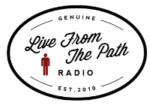Chapter 4 returns to woe and the rough state of Jerusalem but will end in a fulfillment of their requests. They have asked God up to this point that he see what is happening to them and ultimately make it stop and also that the justice that is coming upon them would also come upon those around them who are guilty of what they have been guilty of. (Of course, as God’s people, it’s been made clear in places like Amos that God holds them to a higher standard as they should have known better so the call to justice for those surrounding them isn’t quite equivalent. However, it’s still appropriate.)
There are points at this chapter where it is unclear who/what the subject is of a given line. For example, it seems likely that v.1 is in reference to people (the last time we saw the phrase “at the head of every street” was in 2:19 and referred to hungry children). So, they could be the “holy stones”. But are they the gold, too? Could this just generally be riches of Jerusalem, the gold and the stones? It’s not clear. However, the next few verses are talking about Jerusalem’s children so that option seems to make the most sense.
And as the following verses will show, the children are in rough shape. Infants are starving, the rich who feasted on delicacies have nothing to eat, those who are used to rich, luxurious clothing (purple) embrace the ashes. v.6 compares that which Jerusalem is going through to Sodom and serves to point out that this judgement upon God’s people is longer and has brought a startling reversal (or what we may consider a revealing of true reality) of the earthly values Jerusalem was using to understand her position vs. how God measures that (unworking princes, finely chiseled bodies, beautiful vs. darkened faces, shriveled skins and dry bones.)
v.9 speaks of how it is more fortunate to have died quickly by the sword (just like quick judgment upon Sodom) vs. the victims of protracted hunger. For such a thing has caused abominable behavior (again the cannibalism of children by their own mothers, who failed to feed them as noted earlier). By the way, that they would do this is revealing of their posturing towards God. This is most certainly a grievous disobedience.
v.13 should cut to the quick of any leader/pastor of God’s people. This judgment was for the sins of the prophets and the iniquities of the priests. They are filthy in the eyes of God and the eyes of the people, in fact they are described in terms of that which makes everyone else unclean (dead people/can’t touch garments, lepers /saying unclean) and end up ostracized from that society. The Lord has scattered them and they shall have no honor. The iniquity of the people falls heavy on these fellas for not being faithful and caring for the people.
Then we are back on the perspective of the outsiders who have entered and ransacked Jerusalem. And they were fierce. But then v.21, Jerusalem will get what they want – that their enemies, Edom (and implied others) will get the same cup that Jerusalem is now drinking from. And in v.22, we find that the punishment is coming to and end. It has been accomplished, and they shall be returned from exile, but it will indeed pass to their enemies, the two things that they have been asking for.
| <<< Chapter 3 |  |
Chapter 5 >>> |

